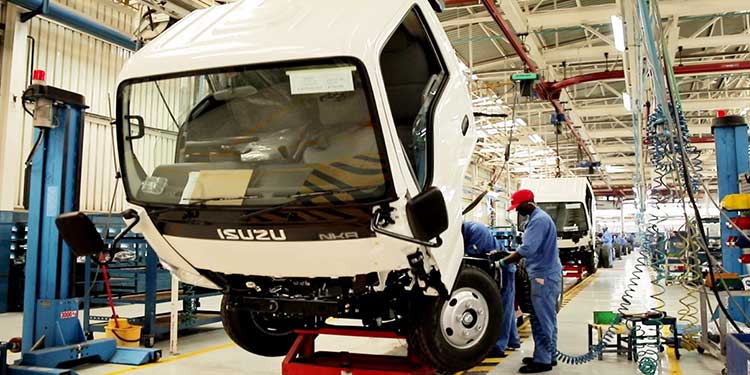
Key investors are promoting a regional approach to vehicle assembly by setting up specialized centers of excellence inside member nations in an attempt to boost East African economies.
This action seeks to promote cooperation, lessen competition in comparable markets, and boost economic benefits for each country in light of the region’s rising demand for automobiles and infrastructure development.
An established investor in the area, Isuzu East Africa, is one such proponent of this approach. When the business recently unveiled its newest mu-X and D-Max car models for the Tanzanian market at a ceremony in Dar es Salaam, it highlighted the model’s potential.
Establishing centers of excellence for various vehicle segments inside each nation, encouraging specialization and pooling of knowledge, is a viable strategy for businesses such as these.
In addition to avoiding market overlap, the strategy promotes expertise sharing and regional synergy, according to Ms. Rita Kavashe, Managing Director of Isuzu East Africa.
“We are dedicated to creating centers of excellence in the automotive sector throughout the East African Community (EAC), but we do not intend to establish a plant to assemble our vehicles in Tanzania.
“We think this will result in a more profitable and cohesive business environment, and it is our route to sustainable growth,” she stated.
Tanzanian factories have been very helpful to us in this area, Ms. Kavashe said, adding, “Our goal is to continue strengthening partnerships with local expertise, so they can help assemble specific vehicles like those used in the tourism sector.”
Isuzu and Tanzania work together on more than just car manufacture. Ms. Kavashe claims that the company has made investments in 25 dealers across the nation, adding to a value chain that also consists of regional distributors, service providers, and suppliers of spare parts.
“Tanzanians themselves made this investment, and we want our efforts to benefit investors not just here but throughout East Africa,” she continued.
The possibility of centers of excellence has also excited the Tanzanian administration. “Specialized centers are a vital step toward strengthening regional collaboration,” said Mr. Shomari Omar Shomari, Director of Transport Infrastructure at Tanzania’s Ministry of Transport, during his remarks at the occasion.
He claimed that the vehicles came at a time when Tanzania was undergoing significant infrastructure development projects that called for this kind of assistance.
Mr. Shomari emphasized that Tanzania’s collaboration with Isuzu has also improved the country’s technological capability.
“Isuzu is contributing more than just car sales; they are investing in our professionals’ abilities and expertise,” he stated.
“We are developing a skilled labor force that can meet both local and regional demand as more Tanzanians receive training to service and maintain vehicles,” he continued.
About 40% of the company’s regional output comes from exports to Tanzania, which are mostly attributable to Tanzania’s strong GDP growth, which is expected to reach 7.5 percent.
Isuzu is taking advantage of the rising demand for dependable vehicles brought about by the busy development projects in places like Dar es Salaam. The centers of excellence provide East African nations with substantial benefits, according to industry experts, enabling them to take advantage of their distinct resources and gain from cross-border cooperation.
